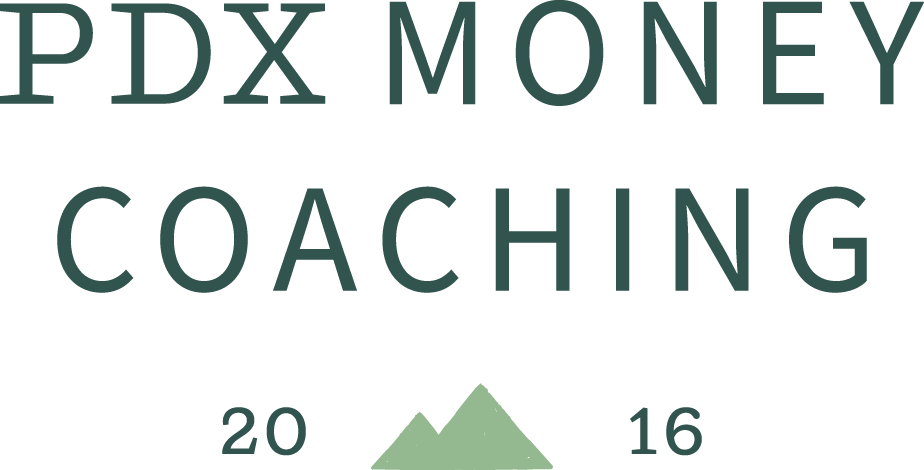It’s never too late to design a life you love
'It's never too late to design a life you love.'
This key belief that it’s never too late, is from the book written by Stanford Professors who teach a popular course with the same name. I read it very quickly the first time, without completing the exercises thoroughly, with the thought that it was great, but that I had already largely designed my lifestyle.
However, since that first read-through we had kids, and I find it takes much more intention to make sure I'm wisely using my one precious life.
(Checkout their books and resources here)
You are here. The first step in taking action is accepting where you are in the moment. You are x years old, with x in savings or investments, with x amount of debt, with x assets or liabilities, with x amount of discretionary income per month. This is where you are.
You may not know exactly where you're headed, and that's OK and, it doesn't mean that you can't take meaningful action right now.Let go of thinking there's one perfect path. This book points out that when you apply a designer's mindset to your life, you brainstorm for sure, and you also try things, knowing there isn't ONE 'right' way to execute your life. In fact, there's more than one best way to spend your life. Similarly, there is more than one ‘best way’ to spend your money.
Take messy action. As a business owner you hear about 'messy action' all the time; extending a new offer, service, or bid, before you know all the details or whether or not it will 'work out.' What's awesome about trying something new is that it gives you information about whether or not you like it, so that you can keep moving forward even more intentionally.
How do I get (intentionally) playful with my money?
You experiment.
Here are some things I’ve seen clients try on:
Opening that investment account, even before knowing exactly how they'll be investing the money (their next step)
Deciding to use some of their eating out budget instead for regular bodywork, wondering if that would bring more ease to their life. They may have had a story that someone on their income 'couldn't afford monthly massages,' but looks like they can.
Requesting to go down to 32 hours per week, and seeing if the decreased pay matters more to them than the joy of extra time.
Asking their boss for a higher salary, or to work remotely. Why not?
Realizing that if they did their own nails, they could afford an annual trip to Europe with their friends in retirement!!
Fear of change, or mistakes, holds many of us back.
Some of us aren't wired for immediate action- In the Kolbe assessment, I'm what you'd call a 'fact finder.' This is essentially the opposite of a 'quick start,' or someone who would rather dive into action right away than research the ‘best’ course of action. I can sometimes get stuck researching forever, and need to hold myself accountable to just trying something new.
Like many business owners, a few years ago I badly needed a new website. Making the decision about who to work with and how much to spend was holding me back.
Some of the most mind-blowing advice I got from a business coach during that time was that even if I went with the highest bid, and I didn’t like it, it would be such a valuable experience for me to make that mistake… just to be someone who COULD make a mistake of that size (17K at the time). I ended up picking someone right away that did not cost nearly as much, who I loved, but I needed to get out of my fear of simply making the decision.
Try something new and you don’t like it? You can always go back.
I know a Financial Advisor who said that at one point she budgeted for weekly massages in her life, and didn’t end up enjoying them as much as when it was something she looked forward to just once per month.
Some questions for you:
What are some things you would love to spend money on without feeling guilty?
What are some things you would do, or incorporate into your life, if they were free
What’s something you used to LOVE doing that you haven’t found time for in a while?
What do you see other people spend money on that you think, ‘Man, I wonder how THEY are someone who can afford to do that?’ Or, ‘that would be nice...’
How to change your own mind?
Do a free-writing where you complete this sentence: ‘I’m just not someone who could _______________________.’
Once you’re done writing each sentence, ask, for example: ‘What belief do I have about myself that makes it so that, for example, ‘I’m not someone who could get a masters degree?’
Change up your beliefs about yourself. Look at your responses to number two, then re-write the beliefs about yourself that you would need to have in order to be someone who does ‘x.’
Examples:
Thought: ‘I could never get a master’s degree as a parent.’
Beliefs holding them back: ‘It’s not right to have my own desires or pursuits be a priority in the family right now.’ ‘I couldn’t justify the expense in our family budget.’
New beliefs: ‘I am a better mom and partner when I feel fulfilled and passionate about what I’m doing. I am great at managing our schedules, and I’m sure I could fit in the coursework I would need to. It’s not asking too much for my partner to have more alone time with the kids.’
It’s these new beliefs which would free this ‘hypothetical’ person up to take new action in her life.
What changes could you make in the near future to design a life you love (even more)?
Thanks for reading, -Emily

